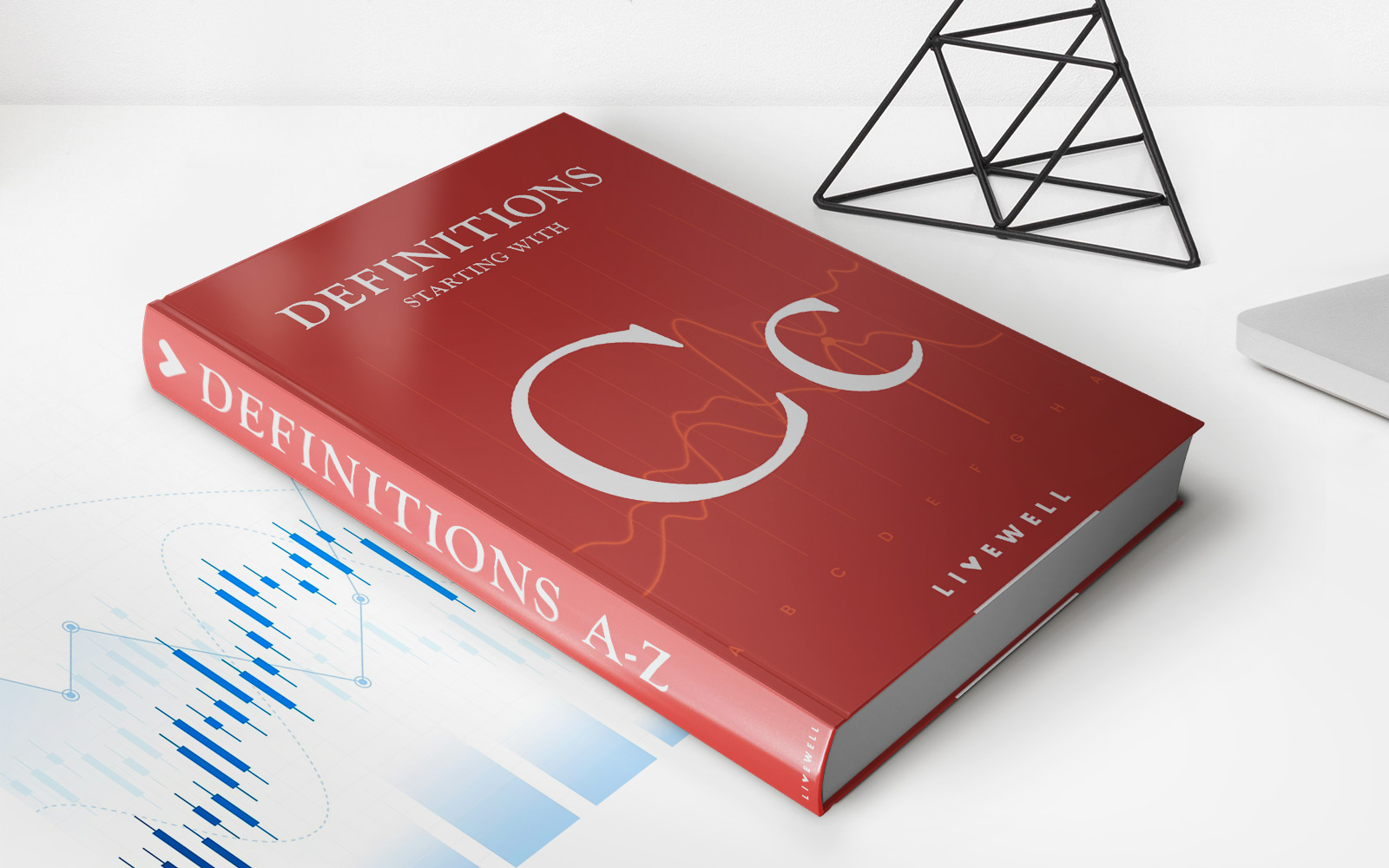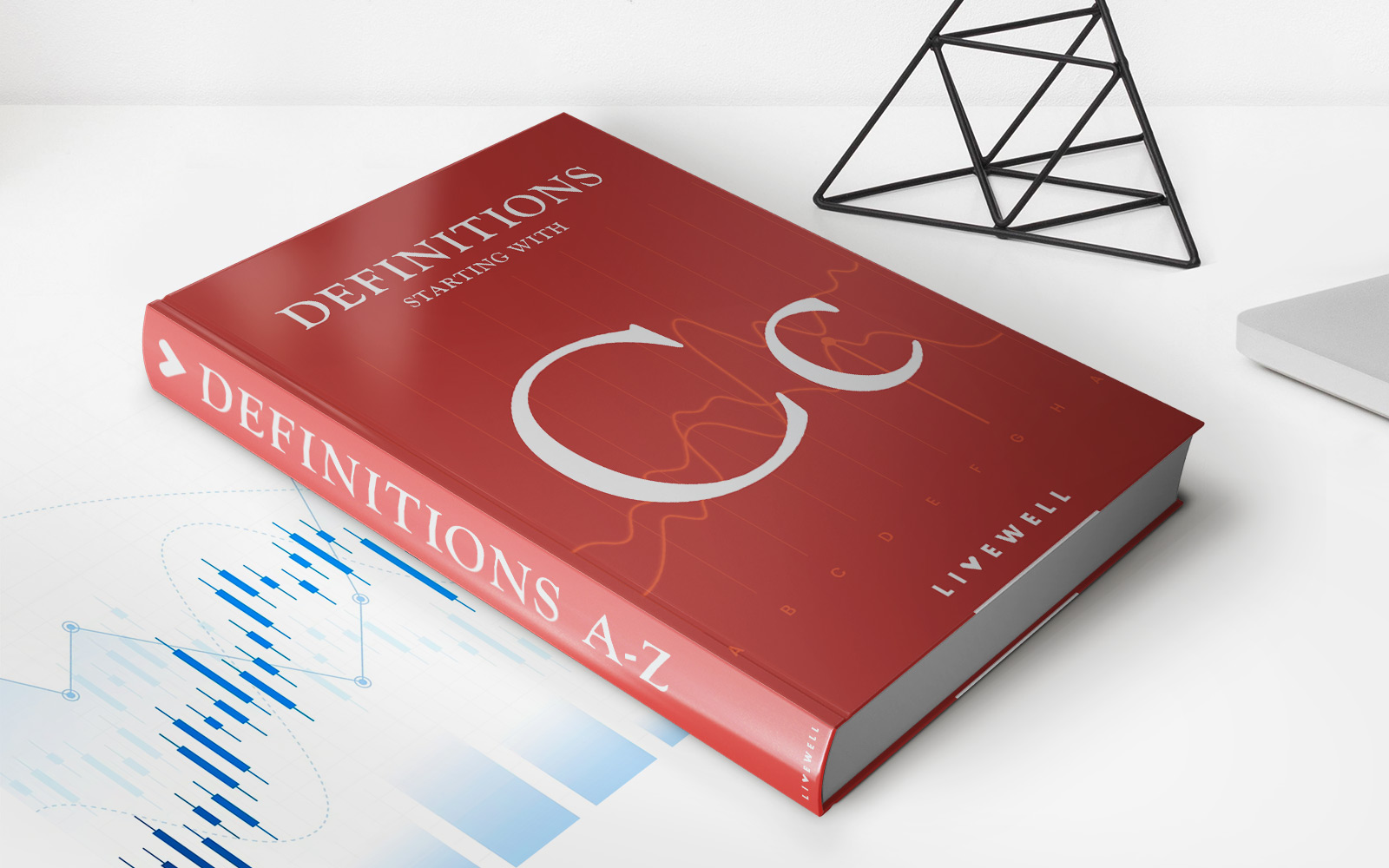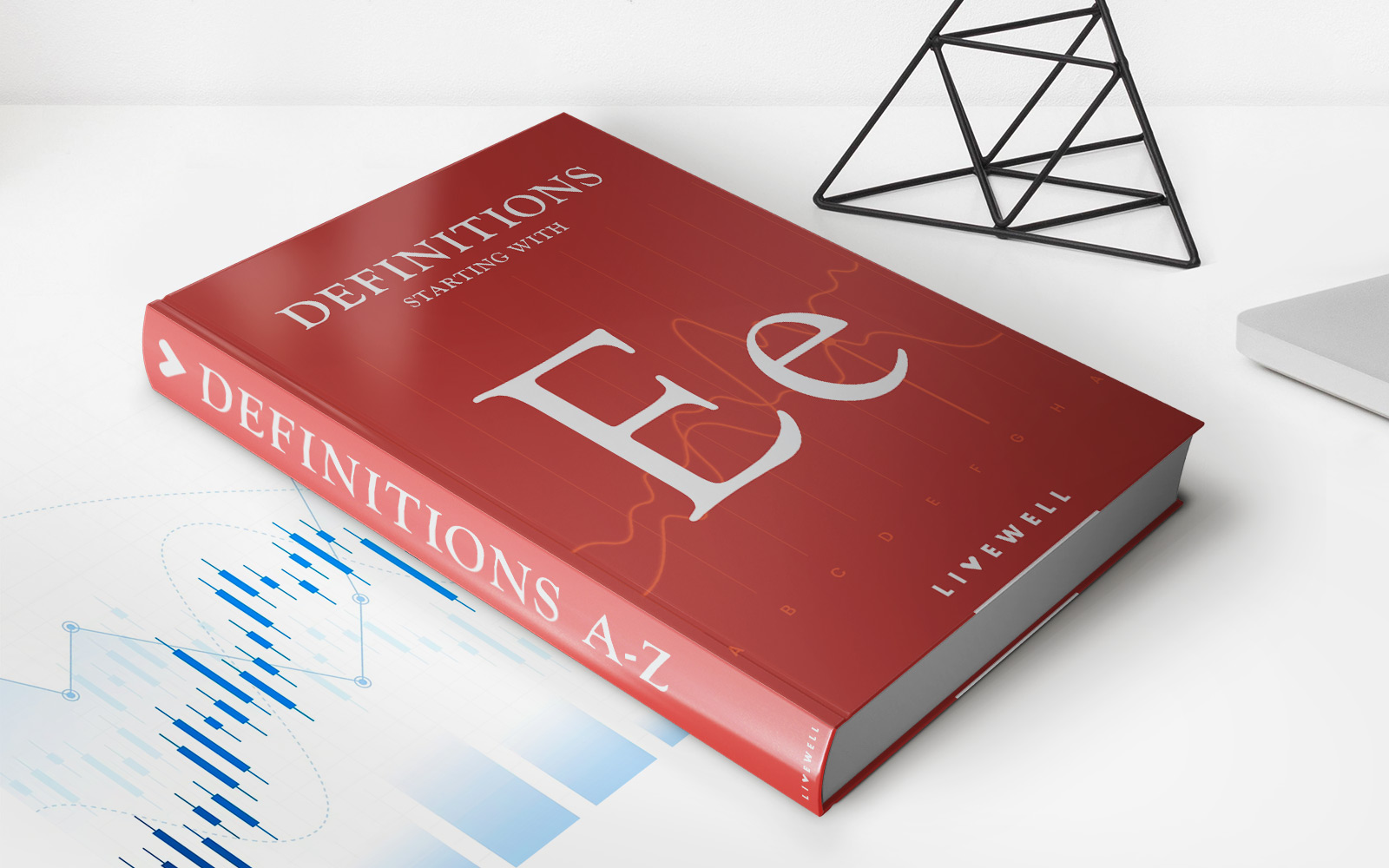

Finance
What Is A Chattel Loan?
Published: February 17, 2024
Learn about chattel loans and how they can help you finance your next big purchase. Understand the ins and outs of this unique form of financing in the realm of personal and business finance.
(Many of the links in this article redirect to a specific reviewed product. Your purchase of these products through affiliate links helps to generate commission for LiveWell, at no extra cost. Learn more)
Table of Contents
Introduction
As the dream of homeownership becomes increasingly attainable for many, alternative financing options have gained traction in the real estate market. One such option that has garnered attention is the chattel loan. This financial instrument provides a pathway to property ownership, particularly for individuals seeking to purchase manufactured or mobile homes. Understanding the nuances of chattel loans is crucial for those exploring diverse mortgage alternatives.
Chattel loans offer a means for individuals to secure financing for homes that are not classified as real estate due to their mobility. Unlike traditional mortgages, which are designed for stationary homes affixed to land, chattel loans are tailored to accommodate the unique nature of mobile homes. By delving into the intricacies of chattel loans, prospective homebuyers can make informed decisions regarding their financing options, ultimately paving the way to homeownership.
This article aims to demystify chattel loans, shedding light on their workings, types, advantages, disadvantages, and qualification criteria. By delving into these aspects, readers will gain a comprehensive understanding of chattel loans, empowering them to weigh the pros and cons of this financing avenue. Whether you are a potential homebuyer or simply curious about alternative mortgage options, embarking on this exploration will equip you with valuable insights into the realm of chattel loans.
What is a Chattel Loan?
A chattel loan, often referred to as a chattel mortgage, is a type of loan specifically tailored to facilitate the purchase of movable property, such as manufactured or mobile homes. Unlike traditional mortgages that are secured by real property, chattel loans are designed for homes that can be transported from one location to another. In essence, these loans are utilized to finance the acquisition of the dwelling itself, rather than the land on which it is situated.
Chattel loans are commonly utilized for manufactured homes located within land-lease communities or on private property. The distinguishing factor of a chattel loan is that it treats the mobile home as personal property, akin to an automobile, rather than as real estate. Consequently, the loan is secured by the home itself, along with the personal property within it, rather than the land where the home is sited.
It’s important to note that while chattel loans are primarily associated with mobile homes, they can also be used to finance other movable assets, such as equipment and vehicles. However, within the context of real estate, chattel loans predominantly serve as a financing mechanism for individuals seeking to purchase manufactured or mobile homes.
Chattel loans are structured to provide borrowers with the means to own a residence without the constraints of traditional mortgage requirements. By understanding the fundamental nature of chattel loans, individuals can explore this alternative financing avenue to fulfill their homeownership aspirations.
How Does a Chattel Loan Work?
A chattel loan operates on a distinct framework compared to traditional mortgages, reflecting the unique nature of the movable property it finances. When a borrower seeks a chattel loan to purchase a mobile home, the lender retains a security interest in the home until the loan is fully repaid. This security interest allows the lender to repossess the home in the event of default, similar to the repossession of a vehicle in an auto loan arrangement.
Upon approval of the chattel loan, the borrower gains ownership of the mobile home and assumes the responsibility of repaying the loan according to the agreed terms. It’s important to recognize that while the borrower possesses the home, the underlying land may be owned by a separate party, such as a land-lease community operator or a private landowner. As a result, the borrower typically pays rent or lease fees for the use of the land where the mobile home is sited.
Chattel loans often have shorter terms and slightly higher interest rates compared to traditional mortgages, reflecting the perceived risk associated with movable property. Additionally, the repayment periods for chattel loans can vary, typically ranging from 15 to 25 years. Throughout the loan term, the borrower makes regular payments to satisfy the outstanding loan balance, inclusive of the principal amount and accrued interest.
When the loan is fully repaid, the lender releases their security interest in the mobile home, thereby transferring full ownership to the borrower. Conversely, in the event of default, the lender may initiate the repossession process to recover the mobile home. This distinct operational mechanism underscores the fundamental workings of a chattel loan, delineating it from conventional mortgage arrangements.
Understanding the mechanics of a chattel loan is pivotal for individuals considering this financing option, as it provides insight into the dynamics of ownership, repayment, and the lender’s security interest in the movable property.
Types of Chattel Loans
Chattel loans encompass various types tailored to accommodate the diverse needs of borrowers seeking financing for movable property. Understanding the specific classifications of chattel loans is instrumental in navigating the realm of alternative mortgage options. The following are common types of chattel loans:
- Traditional Chattel Loans: These loans adhere to conventional structures, offering fixed or adjustable interest rates and diverse term lengths. Borrowers can select a repayment plan that aligns with their financial circumstances, providing flexibility in managing loan obligations.
- Home-Only Chattel Loans: As the name suggests, these loans exclusively finance the purchase of the mobile home itself, excluding the land where it is sited. This type of chattel loan is suitable for individuals who lease land within a manufactured home community or have a separate arrangement for land use.
- Land-Home Chattel Loans: Also known as chattel-dominant loans, these financing options cover both the mobile home and the land on which it is situated. Borrowers seeking a comprehensive loan encompassing both the dwelling and the real estate can opt for this type of chattel loan.
- Refinance Chattel Loans: These loans enable borrowers to refinance existing chattel loans, potentially securing more favorable terms, lower interest rates, or extended repayment periods. Refinancing can offer financial relief and improved loan management for individuals with existing chattel loan obligations.
Each type of chattel loan caters to distinct homeowner scenarios, providing tailored solutions to facilitate the acquisition of movable property. By familiarizing themselves with these loan variants, prospective borrowers can make informed decisions aligned with their specific homeownership objectives.
Advantages of Chattel Loans
Chattel loans offer several distinct advantages that make them an appealing financing option for individuals seeking to purchase mobile homes or movable property. Understanding these advantages provides valuable insight into the benefits of opting for a chattel loan over traditional mortgage arrangements. The following are key advantages of chattel loans:
- Accessibility: Chattel loans provide a viable pathway to homeownership for individuals who may not qualify for conventional mortgages due to credit history, income limitations, or property type. This accessibility expands the pool of potential homeowners, fostering inclusivity in the real estate market.
- Flexibility: Chattel loans offer flexibility in terms of repayment structures, allowing borrowers to select loan terms and interest rate options that align with their financial capabilities. This flexibility empowers borrowers to tailor their loan arrangements to suit their individual circumstances.
- Rapid Approval: Compared to traditional mortgages, chattel loans often entail a streamlined approval process, enabling borrowers to expedite the acquisition of movable property. This swift approval mechanism can be advantageous for individuals seeking prompt financing solutions.
- No Down Payment Requirement: In some cases, chattel loans do not mandate a down payment, alleviating the upfront financial burden for borrowers. This feature can make homeownership more attainable for individuals with limited savings or those navigating financial constraints.
- Tax Benefits: Borrowers with chattel loans may be eligible for tax deductions on the interest paid, providing potential financial advantages. This tax benefit can contribute to overall cost savings for homeowners with chattel loan obligations.
By recognizing and leveraging these advantages, individuals can make informed decisions when considering chattel loans as a financing avenue for acquiring movable property. The accessibility, flexibility, and potential financial benefits associated with chattel loans underscore their significance in diversifying homeownership opportunities.
Disadvantages of Chattel Loans
While chattel loans offer distinct advantages, it is essential to consider the potential drawbacks associated with this financing option. Understanding the disadvantages equips borrowers with comprehensive insights, enabling them to make informed decisions aligned with their homeownership goals. The following are key disadvantages of chattel loans:
- Higher Interest Rates: Chattel loans often entail higher interest rates compared to traditional mortgages, reflecting the perceived risk associated with movable property. This can result in increased long-term borrowing costs for homeowners with chattel loan obligations.
- Shorter Loan Terms: Chattel loans typically have shorter repayment periods, potentially leading to higher monthly payments. The abbreviated loan terms may pose financial challenges for borrowers seeking extended repayment durations to manage their mortgage obligations.
- Limited Resale Value: Mobile homes financed through chattel loans may have limited resale value compared to traditional homes, potentially impacting the potential return on investment for homeowners in the future.
- Land Lease Uncertainties: For individuals residing in land-lease communities, the uncertainty surrounding lease renewals and associated costs can introduce instability into the homeownership experience, necessitating careful consideration of long-term housing arrangements.
- Asset Depreciation: Movable property, such as mobile homes, is susceptible to depreciation over time. This depreciation can affect the overall value of the asset and potentially influence the financial dynamics of chattel loan arrangements.
By acknowledging these potential disadvantages, borrowers can proactively assess the implications of chattel loans on their financial well-being and long-term homeownership aspirations. Mitigating these challenges may involve thorough financial planning, careful consideration of property dynamics, and a comprehensive understanding of the implications of chattel loan commitments.
How to Qualify for a Chattel Loan
Qualifying for a chattel loan necessitates meeting specific criteria tailored to the unique nature of movable property financing. By understanding the qualification requirements, individuals can navigate the application process with clarity and purpose. The following factors are pivotal in determining eligibility for a chattel loan:
- Credit History: Lenders typically assess the applicant’s credit history to gauge their creditworthiness. While specific credit score requirements may vary, maintaining a favorable credit profile can enhance the likelihood of approval and favorable loan terms.
- Income Verification: Demonstrating a stable income and employment history is crucial in establishing the borrower’s capacity to repay the loan. Lenders may request income verification documents, such as pay stubs and tax returns, to assess the applicant’s financial stability.
- Property Type: The type and condition of the movable property, such as a manufactured or mobile home, play a significant role in the loan approval process. Lenders may conduct appraisals and property inspections to evaluate the asset’s value and suitability for financing.
- Down Payment: While some chattel loans do not mandate a down payment, providing a substantial down payment can strengthen the borrower’s financial position and potentially lead to more favorable loan terms.
- Debt-to-Income Ratio: Lenders assess the borrower’s debt-to-income ratio to evaluate their capacity to manage additional loan obligations. Maintaining a balanced debt-to-income ratio can bolster the applicant’s financial standing during the loan approval process.
By fulfilling these qualification criteria, individuals can position themselves favorably when seeking a chattel loan for the acquisition of movable property. Proactively addressing credit history, income stability, property considerations, and financial readiness enhances the prospects of securing a chattel loan aligned with their homeownership objectives.
Conclusion
Exploring the realm of chattel loans unveils a distinctive avenue for individuals seeking to realize their homeownership aspirations, particularly in the context of acquiring movable property such as manufactured or mobile homes. The multifaceted nature of chattel loans encompasses both advantages and disadvantages, underscoring the importance of informed decision-making when considering this alternative financing option.
By comprehending the operational mechanics of chattel loans, prospective borrowers can navigate the intricacies of ownership, repayment, and lender requirements with clarity and purpose. The accessibility, flexibility, and potential tax benefits associated with chattel loans present compelling incentives for individuals seeking viable pathways to property ownership.
However, it is equally crucial to acknowledge the potential drawbacks of chattel loans, including higher interest rates, shorter loan terms, and considerations related to property depreciation and land lease dynamics. By evaluating these factors conscientiously, borrowers can approach chattel loans with a comprehensive understanding of the associated implications.
Qualifying for a chattel loan necessitates meeting specific criteria, encompassing credit history, income verification, property considerations, and financial readiness. By addressing these qualifications proactively, individuals can bolster their eligibility for chattel loan approval, positioning themselves to embark on their homeownership journey with confidence.
In essence, delving into the realm of chattel loans illuminates a financing landscape tailored to accommodate the unique dynamics of movable property, offering a viable pathway to property ownership for a diverse spectrum of aspiring homeowners. By weighing the advantages, disadvantages, and qualification criteria, individuals can make informed decisions aligned with their homeownership objectives, ultimately embarking on a transformative journey toward acquiring and enjoying their cherished abode.














